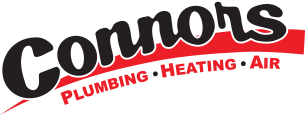Your furnace system works hard behind the scenes, but as it ages, it might start dropping hints that it’s struggling. The tricky part? Knowing whether it’s time to call for repairs or plan for a furnace replacement. Ignoring the signs can lead to higher bills, more stress, and even safety concerns.
As your trusty partner in home comfort, Connors Plumbing, Heating, and Air is here to give you the rundown. We’re breaking down what issues can be solved with a simple repair and which ones could spell future trouble without a replacement.
Warning Signs of a Failing Furnace
Subtle changes in your furnace’s performance can signal underlying issues that require immediate professional evaluation. Understanding these warning signs helps you make informed decisions about your heating system’s future.
Key indicators include:
- Strange noises like banging, rattling, or high-pitched squealing
- Uneven heating throughout different rooms
- Sudden increases in heating bills without changes in usage
- Visible rust or corrosion on the furnace
- A yellow pilot light instead of a crisp blue flame
- Frequent cycling on and off
- Persistent dust or unusual odors when the system runs
- Poor temperature control in your living spaces
When Your Furnace Can Be Fixed
Many common furnace problems are minor and don’t require replacing the entire system. If your heating system is under ten years old and the issue involves a specific part, a professional can often address it with furnace repairs. Replacing components like filters, or motors can restore the unit’s function and improve heating efficiency.
Another reason to repair rather than replace is when the problem stems from a lack of maintenance. Dust, clogged filters, or minor electrical faults might seem serious but are often fixable. After a thorough inspection, a certified technician can determine the root cause and make the necessary adjustments, helping to lower your heating costs without the expense of a new furnace system.
Situations Where a New Furnace Is the Better Choice
Sometimes, a furnace replacement is a safer and more cost-effective decision. As furnaces age, they lose efficiency, driving up heating bills. If your system is over 15 years old and showing significant wear, replacing it guarantees better performance and fewer breakdowns. Modern systems, especially those running on natural gas, are designed to deliver greater energy savings, which offsets the upfront cost of installation.
Another reason to consider replacement is safety. A cracked heat exchanger can release carbon monoxide, putting your household at risk of carbon monoxide poisoning. If the damage is extensive or there’s a consistent risk of a gas leak, replacement is the best option for your peace of mind. Choosing a new furnace also eliminates the frustration of frequent repairs and poor temperature control, giving you reliable comfort for years to come.
Importance of a Professional Inspection
When your furnace starts acting up, it’s not always easy to tell if the issue calls for a quick fix or a full replacement. That’s where a professional inspection comes in. Trained technicians can pinpoint problems you might not notice, like a cracked heat exchanger or a subtle carbon monoxide leak, and assess the overall health of your heating system.
With their expertise, they’ll weigh factors like the furnace’s age, the severity of the issue, and potential repair costs to help you decide on the best course of action. Whether it’s replacing a worn-out part or recommending a new system altogether, a professional will help you make an informed decision that balances safety, efficiency, and your budget.
Why a Certified Technician Should Handle Repairs & Replacements
HVAC systems are complex, and handling furnace repairs or installations without proper training can lead to mistakes. A certified technician has the skills and tools to assess your gas furnace, identify problems, and complete the work to code. Incorrect repairs might lead to dangerous conditions like gas leaks or further damage to your furnace system.
In addition, technicians understand how to optimize a furnace for peak efficiency, which can lower heating bills. They check for proper airflow, fix problems with precision, and recommend solutions tailored to your needs.
Avoid Future Furnace Issues With Routine Safety Checks
Preventive maintenance is the best way to avoid unexpected furnace problems. Simple DIY tasks, such as changing filters monthly and keeping vents clear of debris, improve airflow and reduce strain on the system. However, a thorough safety check from an HVAC specialist provides a deeper level of care.
During scheduled maintenance, our experts clean internal components, inspect for wear, and test CO levels. We check the pilot light, heat exchanger, and other critical areas to catch small issues before they grow into major problems. Routine safety checks not only extend the life of your furnace but also keep heating costs manageable while ensuring your home stays warm all winter long.
Speak to Our HVAC Specialists in Waseca, MN, Today!
Ready to prioritize your family’s warmth and safety? Connors Plumbing, Heating and Air stands ready to help you navigate furnace challenges with expertise and compassion. We’ll take a look at your system and help you make the smartest decision for your home’s heating needs.
Give us a call with any questions or to book an inspection! Our plumbing pros can assess the situation and carry out the most practical and cost-effective resolution. We offer all kinds of heating services in Waseca, MN, and the surrounding areas, including furnace repair and replacement. Whatever your needs are, we’ve got you covered.

